Euphorbia is a diverse and fascinating genus of plants that can bring unique beauty to any garden. They have many shapes, sizes, colors, and textures, and the most awesome feature is that they can thrive in various conditions.
For gardeners who love vibrant flowers blooming year-round, euphorbia has long-lasting flowers that are actually colorful bracts that surround the tiny true flowers. The bracts can last for weeks or even months, and they come in different shades.
If you are seeking some unique kinds of euphorbia to add whimsy and interest to your indoor and outdoor space, here are 15 types of Euphorbia varieties.
#1. Euphorbia Milii
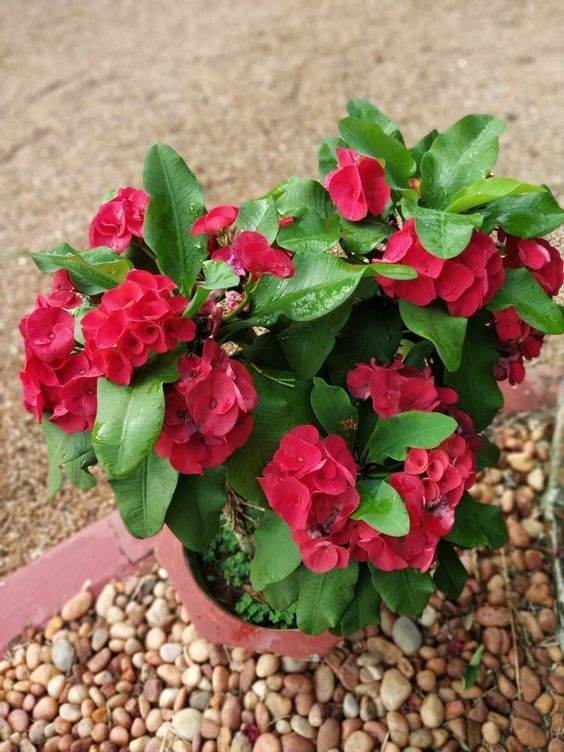
Euphorbia Milii is a succulent shrub that has fleshy, bright green leaves that grow along the new stems, but they may fall off during dry periods. The true flowers are small and green, but they are surrounded by colorful bracts that can be red, yellow, pink, orange, or white.
#2. Euphorbia Tirucalli
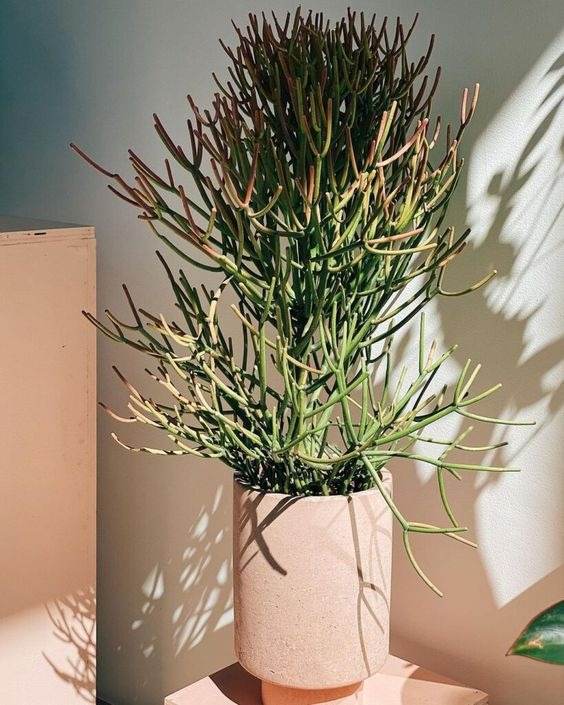
Euphorbia Tirucalli is native to Africa and Asia, and it grows in semi-arid tropical climates. It prefers bright direct light, well-draining soil, minimal water.
#3. Euphorbia Trigona
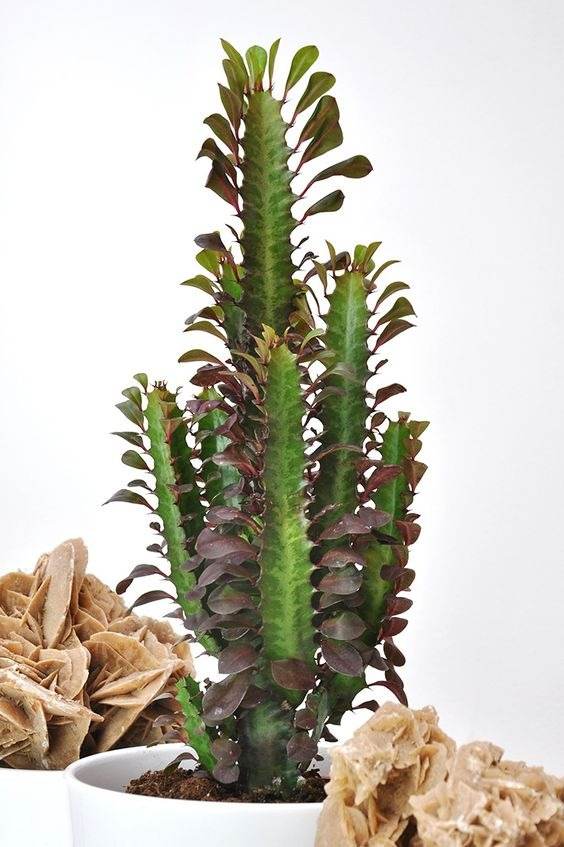
Euphorbia trigona is a succulent plant, which means it can store water in its stems and leaves. It has a triangular shape, with three sides that have rows of thorns and small leaves.
#4. Euphorbia Cristata
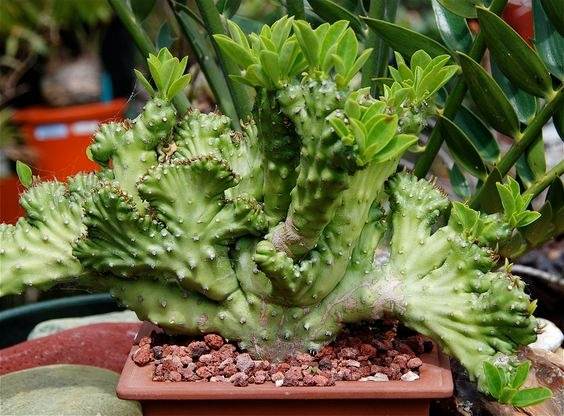
Euphorbia Cristata is actually a graft of two different Euphorbia species: Euphorbia lactea (the crest) and Euphorbia neriifolia (the rootstock). The crest can have various colors, such as green, blue-gray, silver, or pink, depending on the light and stress conditions.
#5. Euphorbia Lactea
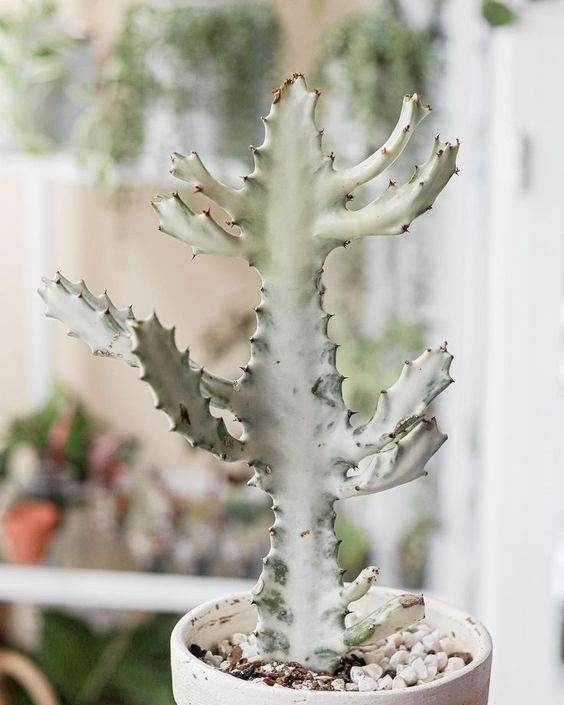
Euphorbia lactea is a succulent plant that has a cactus-like appearance, but it is not a true cactus. It has small spines around the margins and three-sided stems that are green with white stripes. It normally lacks leaves, but occasionally the stem tips will sprout tiny leaves and blooms.
#6. Euphorbia Obesa
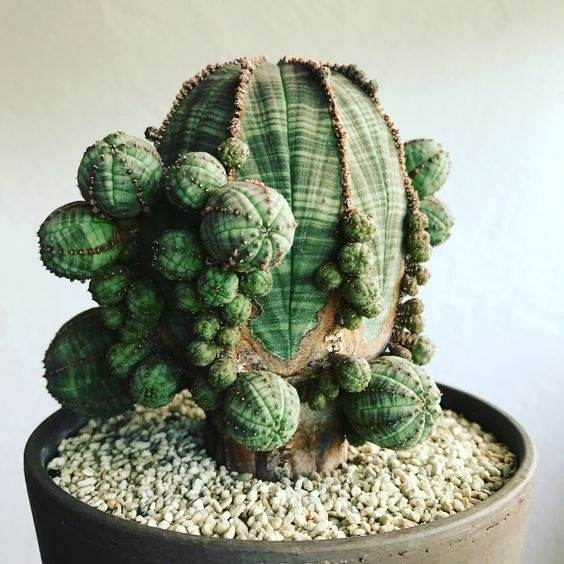
Euphorbia obesa has a Spherical, ribbed stem with a unique shape resembling a baseball. It prefers full sun to partial shade, well-drained cactus/succulent potting mix, and moderate watering.
#7. Euphorbia Eritrea
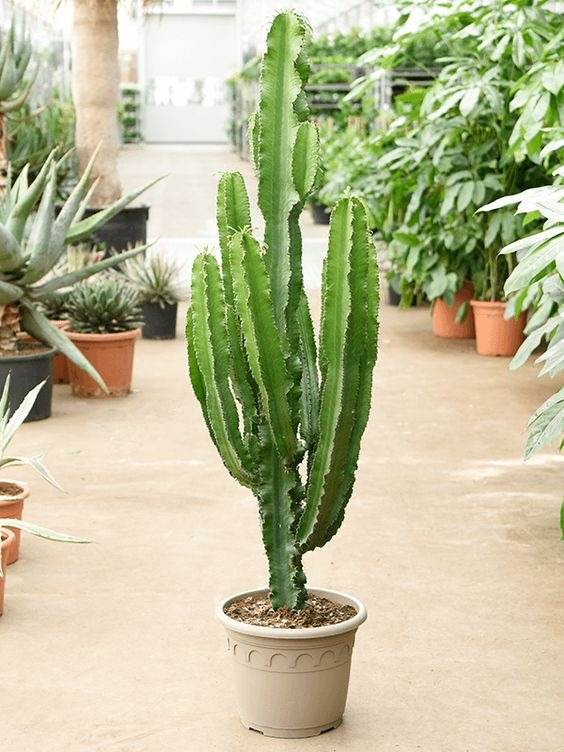
Euphorbia Eritrea rarely flowers, but when it does, it produces simple cymes of tiny, green flowers that are surrounded by yellow, elliptic nectar glands. It is drought-tolerant and can survive dry periods, but it should not be overwatered or exposed to frost.
#8. Euphorbia Characias
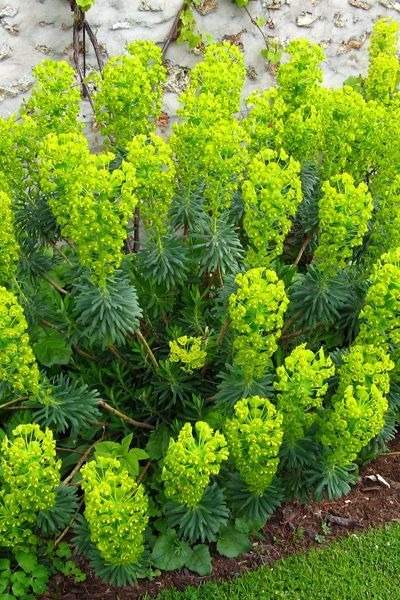
Euphorbia Characias is a bushy perennial with blue-green foliage and flower heads. It blooms from spring to early summer, and it is drought-tolerant and deer-resistant.
#9. Euphorbia Caput-Medusae
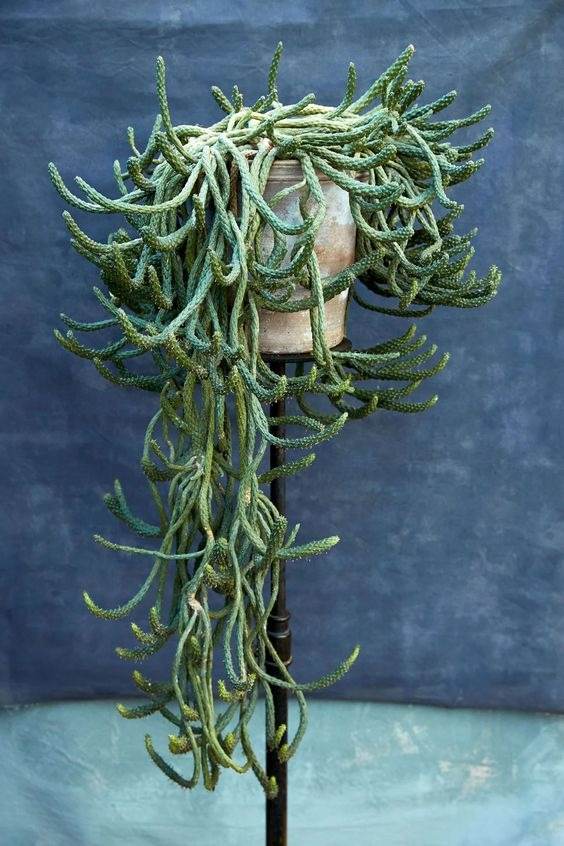
Euphorbia Caput-Medusae stands out in the euphorbia family with unique rosette of snake-like stems resembling Medusa’s hair. It can tolerate droughts but should be protected from frost.
#10. Euphorbia Grandicornis
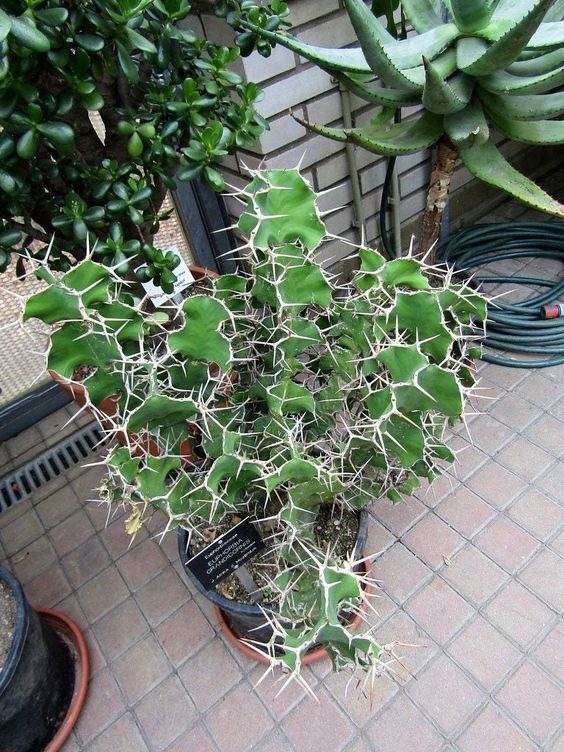
Euphorbia Grandicornis has green, three- or four-winged branches with a zigzag pattern and paired spines along the edges. It should be kept away from pests and children because of its toxic milky sap.
#11. Euphorbia Horrida
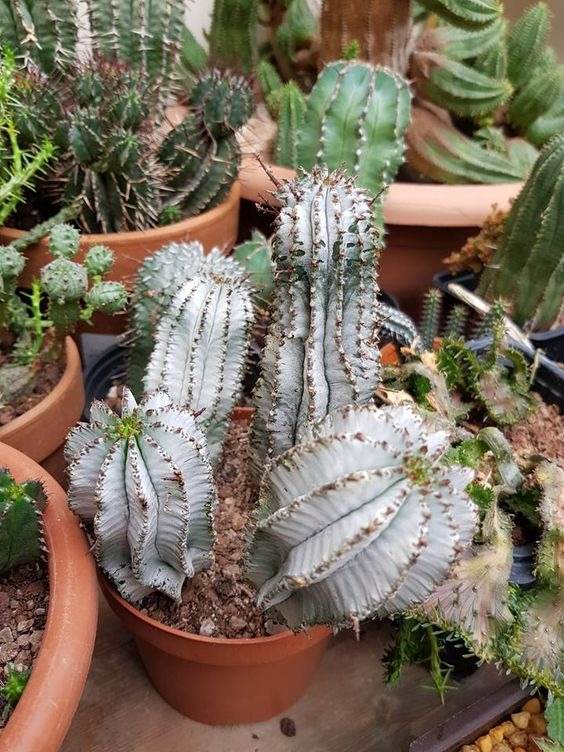
Euphorbia Horrida has spiny, barrel-shaped stems and a green to bluish-green color. It prefers a sunny location with well-drained soil and moderate watering.
#12. Euphorbia Mammillaris
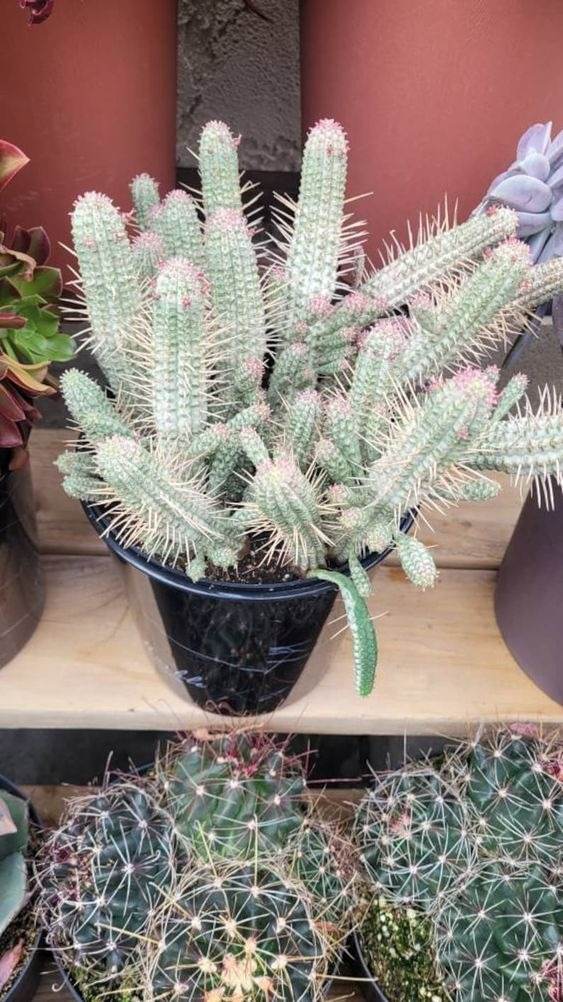
Euphorbia Mammillaris has thick, erect, and ribbed stems that are chalky green in color and resemble the shape of a corn cob. It also has occasional spines that look like blunt toothpicks.
#13. Euphorbia Abyssinica
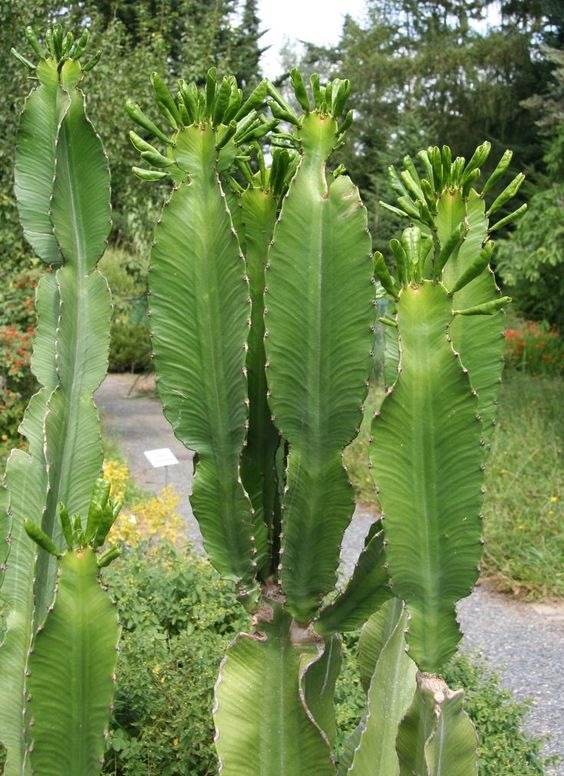
Euphorbia Abyssinica is a succulent, tree-like plant that can grow up to 10 m (33 ft) tall and form large stands or solitary plants. It has thick, green, woody stems with many ribs or angles and small leaves that fall in the dry season.
#14. Euphorbia Marginata
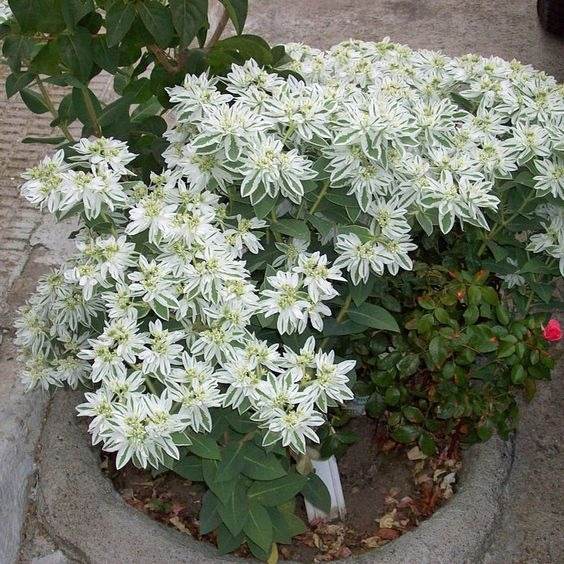
Euphorbia Marginata is native to parts of temperate North America and is also called Snow on the Mountain. It is a low-maintenance and drought-tolerant plant that can be grown in containers or rock gardens.
#15. Euphorbia Pulcherrima
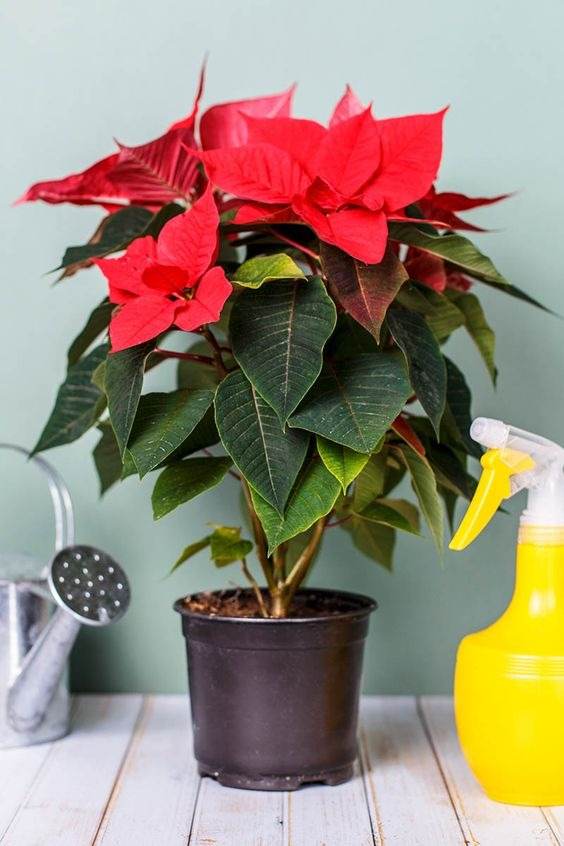
Euphorbia Pulcherrima is a popular holiday plant. It is famous for its red and green foliage, which are actually modified leaves called bracts in red, white, or pink.
Euphorbia is a fascinating plant that can add texture and color to your home and garden. Moreover, it can adapt to harsh environments and develop a striking appearance. If you like to find out more about unique and interesting plants, let us know what you’re interested in and wait for our latest articles.
